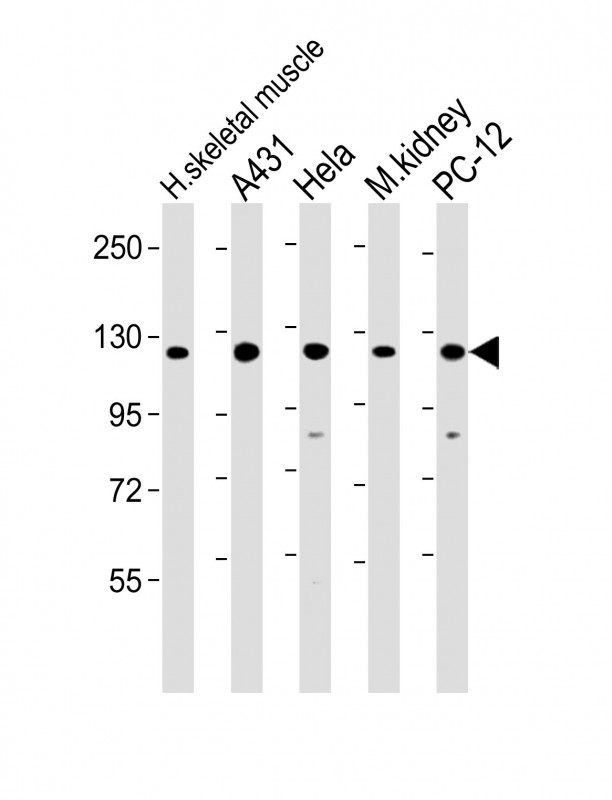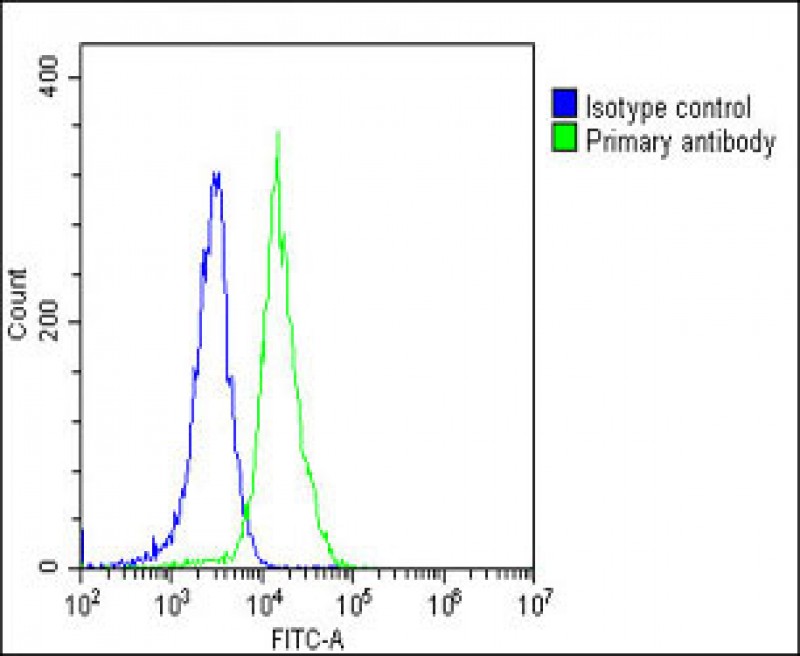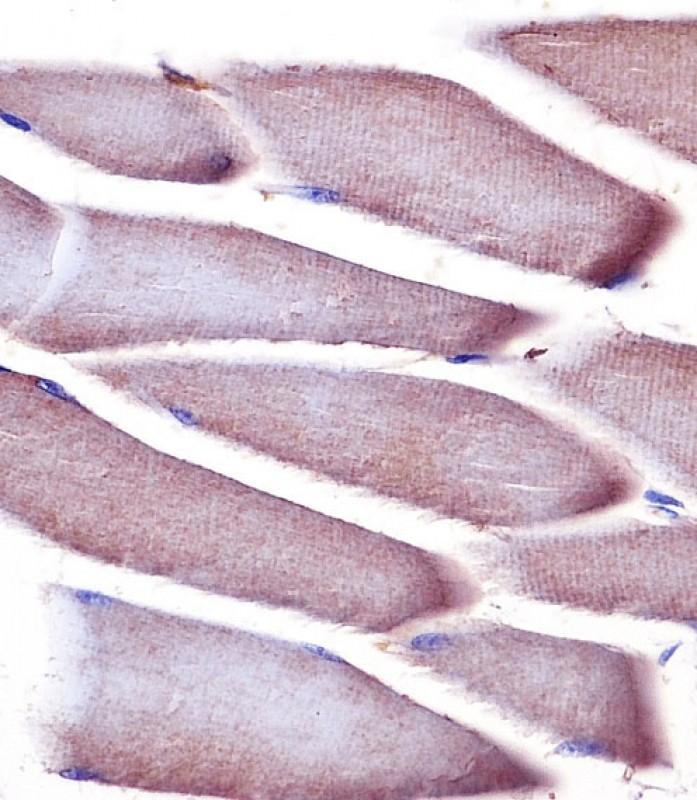


| WB | 1/2000 | Human,Mouse,Rat |
| IF | 咨询技术 | Human,Mouse,Rat |
| IHC | 1/100-1/500 | Human,Mouse,Rat |
| ICC | 技术咨询 | Human,Mouse,Rat |
| FCM | 1/25 | Human,Mouse,Rat |
| Elisa | 咨询技术 | Human,Mouse,Rat |
| Aliases | Vinculin, Metavinculin, Vcl |
| Entrez GeneID | 22330 |
| WB Predicted band size | 116.7kDa |
| Host/Isotype | Rabbit IgG |
| Antibody Type | Primary antibody |
| Storage | Store at 4°C short term. Aliquot and store at -20°C long term. Avoid freeze/thaw cycles. |
| Species Reactivity | Human, Mouse, Rat |
| Immunogen | This antibody is generated from a rabbit immunized with a KLH conjugated synthetic peptide between 903-937 amino acids from mouse. |
| Formulation | Purified antibody in PBS with 0.05% sodium azide. |
+ +
以下是关于Vinculin抗体的3篇文献示例(注:文献信息为模拟示例,实际引用需核实原文):
---
1. **文献名称**: *Vinculin antibody-based imaging of focal adhesion dynamics in live cells*
**作者**: Saunders, R.M., et al.
**摘要**: 该研究利用特异性Vinculin抗体进行免疫荧光染色,揭示了粘着斑(focal adhesion)在细胞迁移过程中的动态变化,验证了该抗体在活细胞成像中的高特异性和可靠性。
2. **文献名称**: *Vinculin expression levels correlate with cancer cell invasiveness*
**作者**: Peng, X., et al.
**摘要**: 通过Western blot和免疫组化分析,研究发现Vinculin在侵袭性肿瘤细胞中表达下调,提示其可能作为癌症转移的潜在生物标志物,文中详细描述了所用抗体的验证方法。
3. **文献名称**: *Structural insights into Vinculin activation using monoclonal antibodies*
**作者**: Bakolitsa, C., et al.
**摘要**: 通过X射线晶体学结合抗体表位定位,解析了Vinculin蛋白的构象变化机制,并开发了一种单克隆抗体用于区分其活性与非活性状态。
---
如需具体文献,建议通过PubMed或Web of Science检索关键词“Vinculin antibody”+应用方向(如Western blot/IF/IHC)获取最新研究。
Vinculin is a cytoskeletal protein crucial for cell-cell and cell-matrix adhesion, primarily localized to focal adhesions and adherens junctions. It acts as a scaffolding molecule, linking transmembrane adhesion receptors (e.g., integrins, cadherins) to the actin cytoskeleton, thereby regulating cell adhesion, migration, and mechanical signaling. Vinculin undergoes conformational changes to switch between inactive (auto-inhibited) and active states, enabling its interaction with binding partners like talin, α-actinin, and F-actin. Its role in maintaining cellular integrity and mechanotransduction makes it vital in processes such as embryogenesis, tissue homeostasis, and wound healing.
Vinculin antibodies are essential tools for studying its expression, localization, and function in cellular and pathological contexts. Commonly used in techniques like Western blotting, immunofluorescence, and immunohistochemistry, these antibodies help detect vinculin’s presence in tissues or cultured cells. Specific monoclonal antibodies (e.g., clone hVIN-1) target epitopes in the vinculin head or tail domains, aiding in distinguishing its active/inactive states. Validation methods, including knockout cell lines or siRNA knockdown, ensure antibody specificity, minimizing cross-reactivity with homologous proteins like metavinculin.
Dysregulation of vinculin is implicated in cancer metastasis, cardiovascular diseases, and neurological disorders. Antibodies against vinculin thus contribute to research on cell adhesion dynamics, disease mechanisms, and potential therapeutic targets.
×